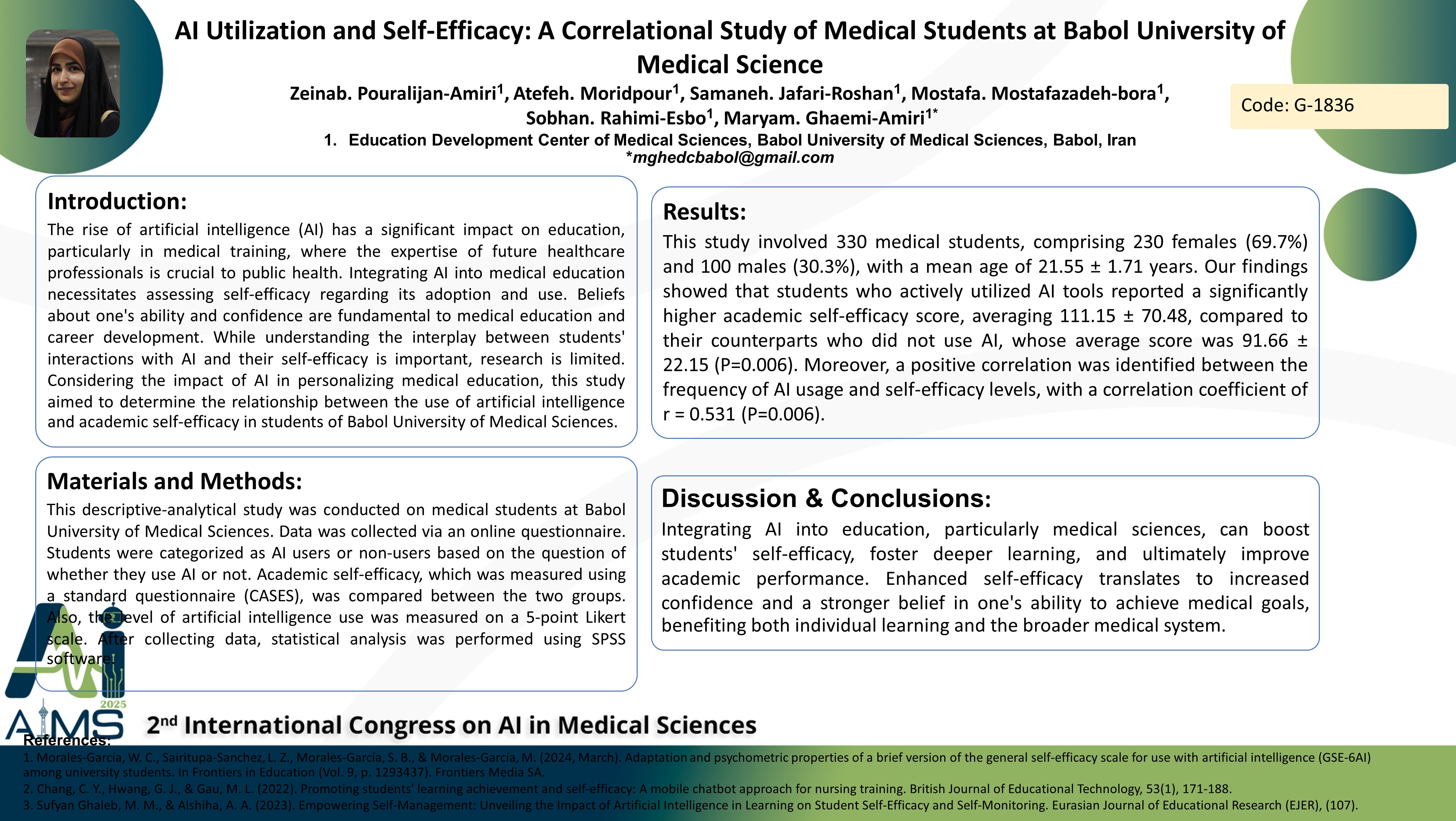استفاده از هوش مصنوعی و خودکارآمدی: یک مطالعه همبستگی بر روی دانشجویان پزشکی دانشگاه علوم پزشکی بابل
کد: G-1836
نویسندگان: Zeinab Pouralijan-Amiri ℗, Atefeh Moridpour, Samaneh Jafari-Roshan, Mostafa Mostafazadeh-bora, Sobhan Rahimi-Esbo, Maryam Ghaemi-Amiri *
زمان بندی: زمان بندی نشده!
برچسب: سیاست گذاری، قانون گذاری و مدیریت سلامت در حوزه هوش مصنوعی
دانلود: دانلود پوستر
خلاصه مقاله:
خلاصه مقاله
Background and aims: The rise of artificial intelligence (AI) has a significant impact on education, particularly in medical training, where the expertise of future healthcare professionals is crucial to public health. Integrating AI into medical education necessitates assessing self-efficacy regarding its adoption and use. Beliefs about one's ability and confidence are fundamental to medical education and career development. While understanding the interplay between students' interactions with AI and their self-efficacy is important, research is limited. Considering the impact of AI in personalizing medical education, this study aimed to determine the relationship between the use of artificial intelligence and academic self-efficacy in students of Babol University of Medical Sciences. Method: This descriptive-analytical study was conducted on medical students at Babol University of Medical Sciences. Data was collected via an online questionnaire. Students were categorized as AI users or non-users based on the question of whether they use AI or not. Academic self-efficacy, which was measured using a standard questionnaire (CASES), was compared between the two groups. Also, the level of artificial intelligence use was measured on a 5-point Likert scale. After collecting data, statistical analysis was performed using SPSS software. Results: This study involved 330 medical students, comprising 230 females (69.7%) and 100 males (30.3%), with a mean age of 21.55 ± 1.71 years. Our findings showed that students who actively utilized AI tools reported a significantly higher academic self-efficacy score, averaging 111.15 ± 70.48, compared to their counterparts who did not use AI, whose average score was 91.66 ± 22.15 (P 0.006). Moreover, a positive correlation was identified between the frequency of AI usage and self-efficacy levels, with a correlation coefficient of r = 0.531 (P 0.006). Conclusion: Integrating AI into education, particularly medical sciences, can boost students' self-efficacy, foster deeper learning, and ultimately improve academic performance. Enhanced self-efficacy translates to increased confidence and a stronger belief in one's ability to achieve medical goals, benefiting both individual learning and the broader medical system.
کلمات کلیدی
Artificial Intelligence, Self-Efficacy, Medical Student
